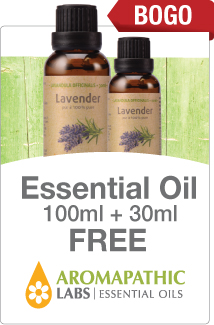Hyperthyroid (Overactive)
Updated Mar. 21st, 2022
The thyroid gland sets the metabolic rate for the body. An overactive thyroid causes the body to work too quickly resulting in nervousness, tremors, sleeplessness, palpitations, sweating, fever, diarrhea and increased appetite with paradoxical weight loss. This over excitability can eventually lead to death from exhaustion of the body.
A dangerous increase in blood pressure may also result. A hyperthyroid period often precedes hypothyroidism as the gland makes one last attempt to maintain functioning before shutting down.
Grave’s disease is an autoimmune condition that commonly causes hyperthyroidism. Other suspected causes of hyperthyroidism are food sensitivities, mercury poisoning, extreme stress, hormonal imbalances, bowel infections and leaky gut syndrome.
Conventional treatment of hyperthyroidism involves thyroid-blocking medications. In some cases surgery or gland irradiation is performed. This then leaves the individual in a hypothyroid state. They must replace the thyroid hormone with synthetic thyroid. This is better for the body than remaining in a hyperthyroid state.
Natural treatment of hyperthyroidism involves identifying food allergens, assessing for metal toxicity, using natural thyroid suppressors and supporting the body with vitamins and minerals. Eat lots of whole and fresh foods to replace the nutrients lost to excessive metabolism. They also provide enzymes to help food digestion. Use green vegetables, whole grains and nutritional yeast for B vitamins.
Eat broccoli, brussel sprouts, cabbage, cauliflower, kale, peaches, pears, rutabagas, soybeans, onions, spinach and turnips because they suppress thyroid hormone function. Avoid iodized salt, coffee, black tea, chocolate and colas, which speed up metabolism. Avoid the most common food allergens for hyperthyroid patients, which are dairy products, wheat, caffeine and nicotine products.
Nutritional support for hyperthyroidism consists of providing the body with optimum doses of nutrients that it needs to cope with stress and providing nutrients that this disorder depletes. Of these, the B complex vitamins are very important, as both your brain and your stress glands need them to function properly.
People with an overactive thyroid can often be deficient in these nutrients. You might also consider herbs that help you to relax naturally without side effects.
Proper sleep and moderate exercise help regulate thyroid functioning. So does controlling the stress you experience in your life. If you have an overactive thyroid and your stress level is very high, you need to make some lifestyle changes or learn to adapt to the stress more effectively.























You said soy and soya products are good for graves.
When you state this you better also state that
close to 90% of soy is from GMO Soybeans.
Soy products made from these soybeans can cause inflammation in the body. So unless you can be certain the soy products you are eating are not GMO then they should not be eaten. Thank You Brian
Hi Super B,
Yes, people with an auto immune disorder should be concerned with not consuming food or products with GMO's, as should everyone, to ensure they are getting the healthiest form of nutrition. Thanks for your comment and if you have any further questions please let us know and we'd be happy to help! Have a healthy day!
I have been researching and I read soy is bad for hyperthyroidism but you say is not Im confused can you explain please thanks!
Hello,
Thank you for your question, we're glad you've been enjoying our articles. Soy has often been seen as an issue for thyroid concerns because it's been thought that soy can interfere with the body's ability to absorb thyroid medication or cause further issues. However, fermented soy interacts differently. While thyroid medication should be taken on an empty stomach, the fermentation process effectively breaks down the very high levels of phytic acid and other anti-nutrients like lectins. We hope this clears things up for you.
Have a healthy day!